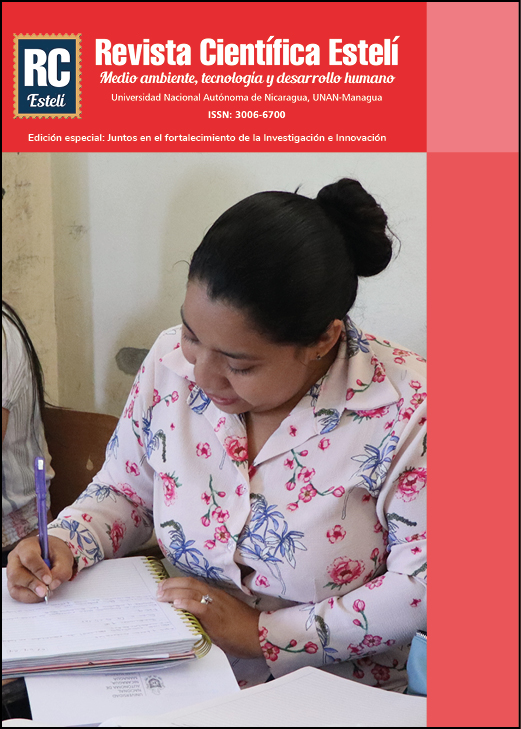Generic competencies for the professional practices of students of Economic Sciences of the CUR-Estelí of the UNAN-Managua
DOI:
https://doi.org/10.5377/esteli.v13i2.19812Keywords:
Professional practices, knowledge, skills, abilities, generic competencies, graduates, employers, Tuning Latin America ProjectAbstract
The professional training practices are part of the curricula of the different careers of UNAN Managua and are conceptualized as “a student academic practice, which contributes to consolidate the knowledge, skills and abilities acquired by the students, as well as the development of attitudes and values” (UNAN-Managua, 2011, p. 68). They have the objective of interdisciplinary linking the student to his or her future field of work. However, these competencies formed at the University sometimes do not correspond to those demanded in the Internship Centers, therefore, the objective of the article is to contrast the competencies formed with the competencies demanded, which allows prioritizing the development of the generic competencies necessary for the working world. The approach used is quantitative, because quantitative data were collected and analyzed based on Likert scale variables of generic competencies determined by the Tuning Latin America Project. Applied, because it compares the generic competencies formed with the competencies demanded in graduates of the Economic Sciences careers of CUR Estelí/UNAN Managua. Descriptive, because it describes the attitudes of graduates and employers. Cross-sectional, because the information was collected in the year 2020. It was concluded that when contrasting the competencies trained with the competencies demanded, there is much coincidence between the most important and the least important for the two groups surveyed (graduates and employers). Ten generic competencies were found to be the most important and 5 generic competencies were found to be the least important in the world of work and in the training of graduates.
Downloads
191
HTML (Español (España)) 30
Published
How to Cite
Issue
Section
License
Copyright (c) 2024 Revista Científica Estelí

This work is licensed under a Creative Commons Attribution-NonCommercial-ShareAlike 4.0 International License.
© Revista Científica de FAREM-Estelí

